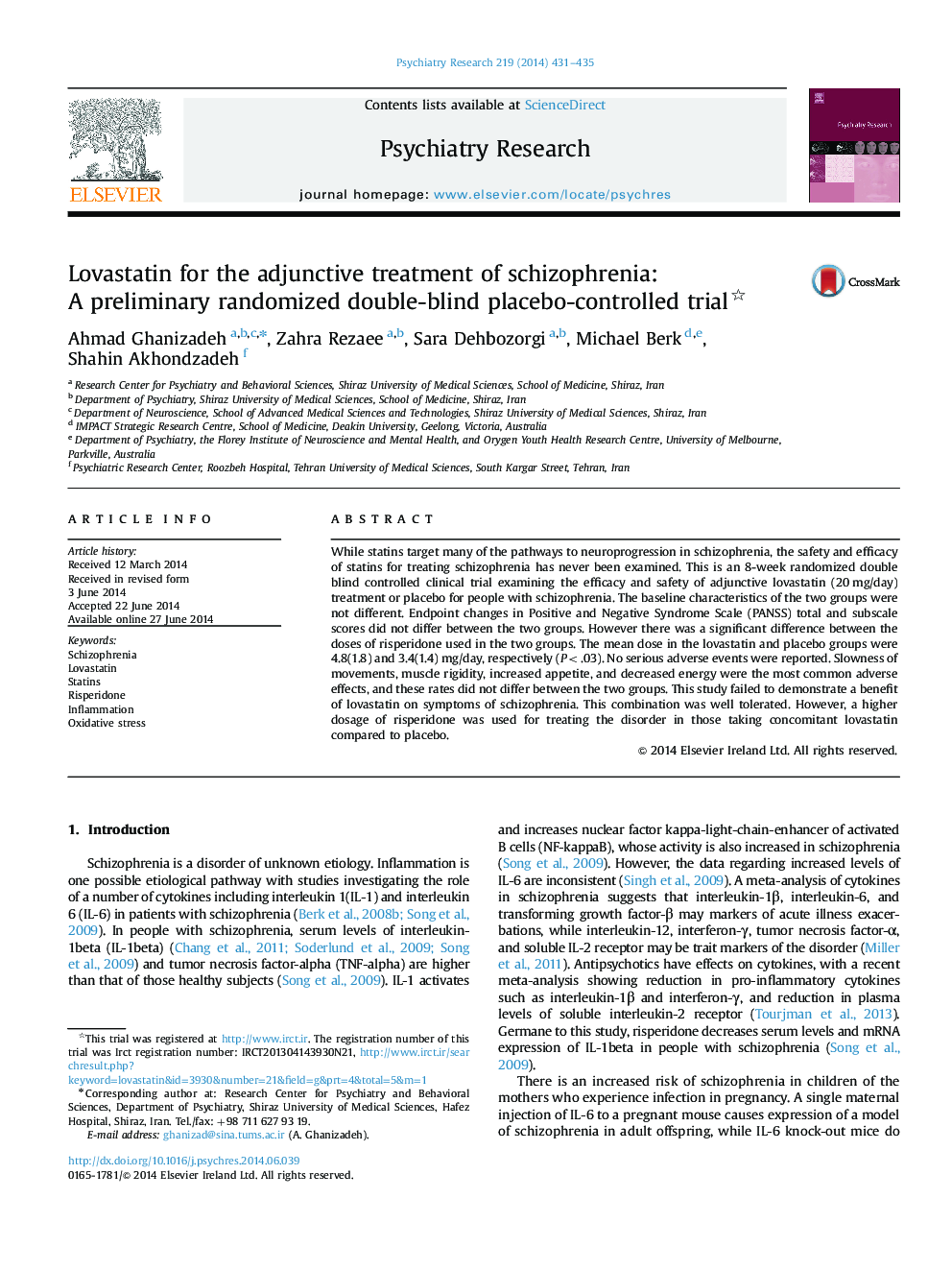| Article ID | Journal | Published Year | Pages | File Type |
|---|---|---|---|---|
| 332130 | Psychiatry Research | 2014 | 5 Pages |
•Lovastatin was no more effective than placebo.•No serious adverse effect was reported.•Lovastatin may increase the required dosage of risperidone.
While statins target many of the pathways to neuroprogression in schizophrenia, the safety and efficacy of statins for treating schizophrenia has never been examined. This is an 8-week randomized double blind controlled clinical trial examining the efficacy and safety of adjunctive lovastatin (20 mg/day) treatment or placebo for people with schizophrenia. The baseline characteristics of the two groups were not different. Endpoint changes in Positive and Negative Syndrome Scale (PANSS) total and subscale scores did not differ between the two groups. However there was a significant difference between the doses of risperidone used in the two groups. The mean dose in the lovastatin and placebo groups were 4.8(1.8) and 3.4(1.4) mg/day, respectively (P<.03). No serious adverse events were reported. Slowness of movements, muscle rigidity, increased appetite, and decreased energy were the most common adverse effects, and these rates did not differ between the two groups. This study failed to demonstrate a benefit of lovastatin on symptoms of schizophrenia. This combination was well tolerated. However, a higher dosage of risperidone was used for treating the disorder in those taking concomitant lovastatin compared to placebo.
